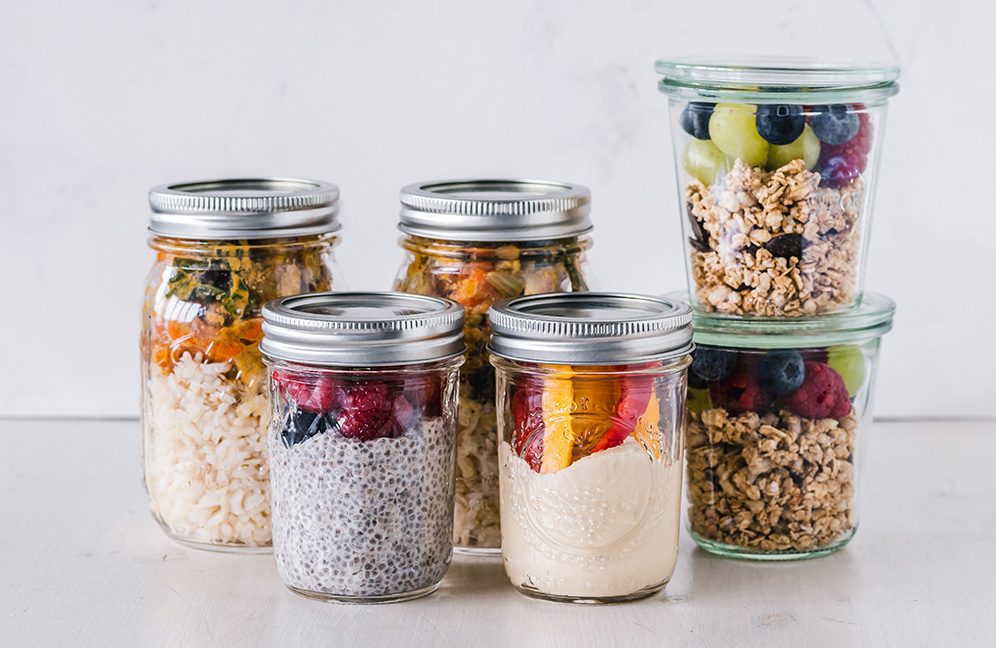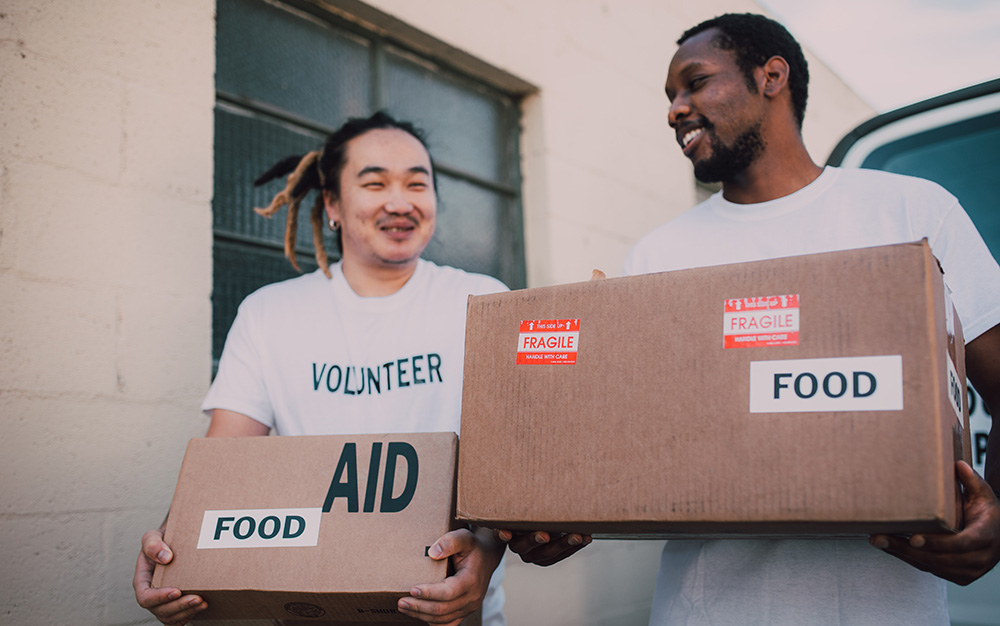If you're like most Americans, cleaning out the fridge is part of your weekly routine. You check to see which leftovers can be served for lunch and which ones should get dumped. Then there's the produce drawer, where you may find stuff you had completely forgotten about (and may not even recognize). The USDA estimates that 30-40% of the US's entire food supply ends up being wasted. That's huge! Even if less food than that gets thrown away in your household, it's still a bummer, especially if it's something you were looking forward to eating.
Every pound of wasted food has a cost, and not just in your grocery budget. Labor, energy, water, and other resources were used to produce that food, and more of the same resources will be expended in hauling it away to a landfill. As you can see, food waste is more than a personal or household problem. The good news is that there a few simple tricks to help you waste less, starting right now.
Plan Ahead
If you already meal plan, you know it's the best thing ever. If you haven't tried it yet, jump in! It's not as hard as you might imagine. You know those tried-and-true recipes you tend to fall back on for busy weeknight dinners? Go scribble those onto your calendar for next week. See? Done. To take it a step further, first check your freezer, fridge, and pantry and base your recipe choices on what you have on hand. If you're not convinced that this simple step can help fight food waste, think about this: Have you ever gone to the grocery store and grabbed something that looked yummy, only to have it shrivel up and die in your fridge before you could figure out how and when to prepare and serve it? This brings us to our next point...

Shop With Purpose
With your meals all planned out for the week, you're less likely to impulse-buy something that will later go to waste. All you need to do is look at your meal plan and then shop your kitchen first. Whatever you still need is what you'll buy at the supermarket. When you're intentional about your purchases, you not only waste less; you also avoid falling into the trap of buying lots of junk food. Double win!
[insert page='Offer' display='content']
Preserve What You Can
You don't have to learn canning and dehydrating to preserve leftover food. What you should do is make sure anything you put in the freezer is wrapped and labeled well. The same goes for the fridge. If you plan on packing dinner leftovers as lunch later in the week, write the date on the container so you don't end up throwing out perfectly good food just because you aren't sure how old it is.

Donate Intentionally
Donating to a local food bank is an excellent way to fight food waste and give back to your local community at the same time. However, if the food you give away is out of date or otherwise unusable, the donation center may throw it away anyway.
Who would have thought that wasting less could make such a big difference in the world and save you time and money at the same time? Do you already meal plan? What's the best advice you have for someone who's just starting out? Let me know in the comments!



Thank you for bringing attention to this important matter that we all have the power to address immediately. If people have space to start a compost pile for any scraps or food that does go bad, you will also keep food out of landfills. Food doesn’t decompose in landfills, it ferments due to the lack of oxygen. In the process it produces methane which is a much more potent greenhouse gas than CO2 (80x more so in it’s first 20 years in the atmosphere!).
Thank you again for highlighting the important matter!